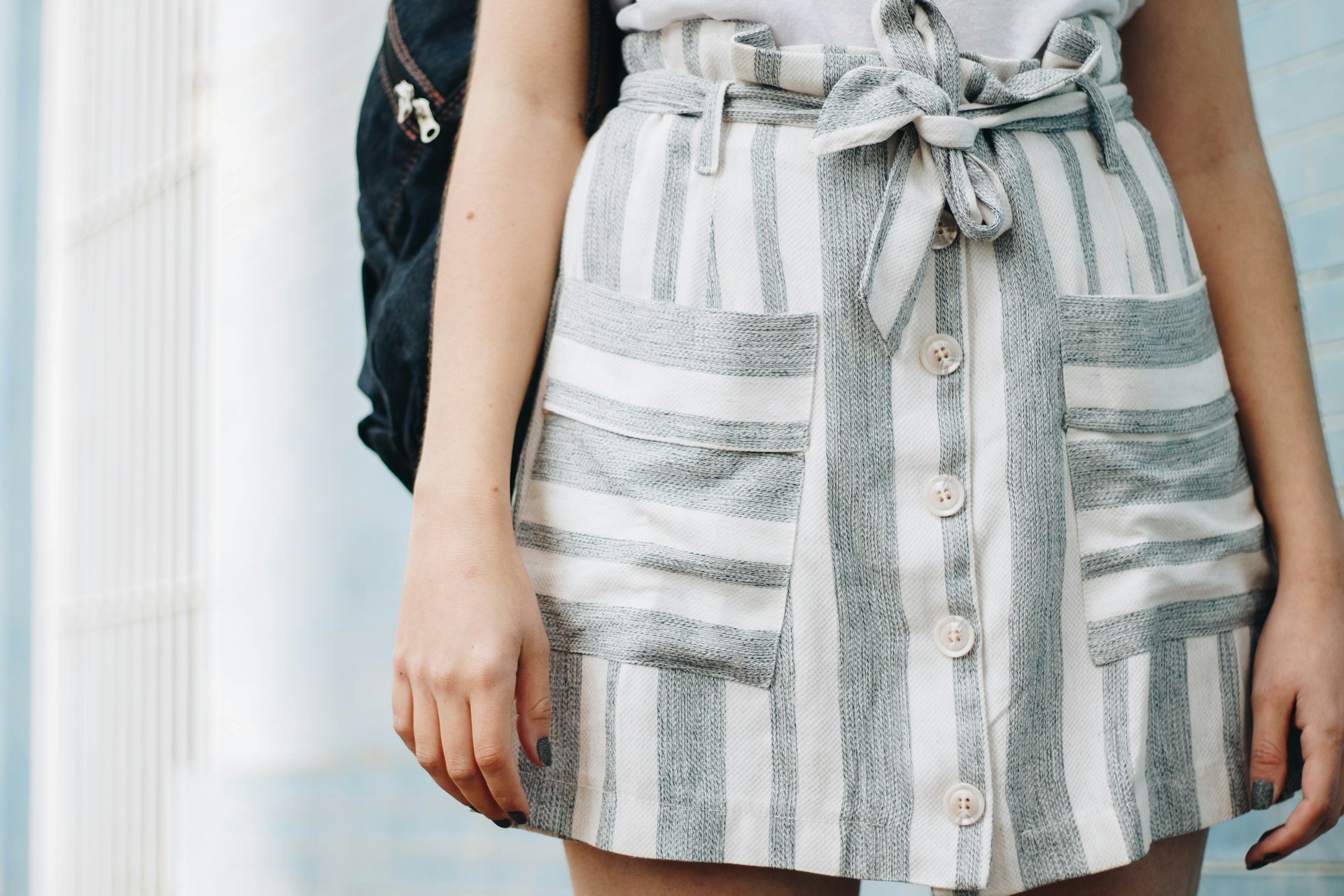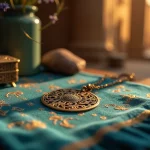If you’ve ever dealt with sensitive skin or skin allergies, you know that the struggle is real when it comes to finding suitable clothing. The quest for appropriate fabric that does not irritate your skin can seem endless. But what if we told you there’s a clear front-runner in the world of skin-friendly fabrics? We’re talking about bamboo fiber. Many shoppers have turned to bamboo fabric as an effective solution, and for good reasons. It’s soft, moisture-wicking, hypoallergenic, and eco-friendly. But there’s more to this sustainable fabric than meets the eye.
The Unique Properties of Bamboo Fabric
Before delving into why bamboo makes excellent clothing for sensitive skin, you should understand what sets this fabric apart. Bamboo fabric derives from the pulp of bamboo plants, a type of grass known for its rapid growth and exceptional resilience. Despite its strength, bamboo fabric is remarkably soft, often compared to the softness of silk or cashmere.
Avez-vous vu cela : The science behind natural flavors: Unveiling taste innovation
What makes bamboo fabric unique are its inherent properties like breathability and moisture-absorption. It can wick away sweat from your body, keeping you dry and comfortable throughout the day. More importantly, bamboo possesses anti-bacterial properties, which resist foul odors and keep your clothes fresher for longer.
Bamboo Vs. Cotton: A Comparative Study
When we talk about natural fibers, cotton often comes to mind. It’s been the go-to natural fiber for years. But how does bamboo compare to cotton? Believe it or not, bamboo takes the lead in multiple areas.
Sujet a lire : Can You Explain How to Prepare Your Skin for a Flawless Foundation Application?
To start with, bamboo is more absorbent than cotton. It wicks away moisture up to four times faster, providing a dryer and more comfortable environment for your skin. This property is essential when dealing with skin allergies, as excess moisture can trigger or exacerbate allergic reactions.
Bamboo fabric is also thermoregulating, meaning it can adapt to your body temperature. It keeps you warm in winter and cool in summer, unlike cotton, which does not have the same adaptability.
In terms of softness, bamboo outshines cotton too. The fibers in bamboo fabric are smoother and rounder, which results in a softer feel against your skin.
The Eco-Friendly Attribute of Bamboo Fabric
As you shop for clothing, considering the environmental impact of your choices is crucial. In this aspect, bamboo fabric stands out for its eco-friendly properties.
For starters, bamboo is one of the fastest-growing plants on the planet. It requires less water to grow compared to cotton, and it naturally replenishes itself, reducing the need for intensive farming practices. This growth pattern also means bamboo can absorb more carbon dioxide, a significant greenhouse gas, contributing positively to the environment.
Bamboo fabric is also 100% biodegradable. At the end of its life cycle, it will break down into the earth without leaving any harmful residues.
Bamboo Fabric: A Boon for Sensitive Skin
Having sensitive skin or dealing with skin allergies is a constant challenge. You need to be mindful of everything that touches your skin, including your clothing. Here is where bamboo fabric shines.
Firstly, bamboo fabric is hypoallergenic. It does not cause any allergic reactions, making it a perfect choice for individuals with skin allergies or sensitivities.
The super soft texture of bamboo fabric is also gentle on your skin. It minimizes any friction that can cause irritation or discomfort.
Moreover, as bamboo fabric effectively wicks away moisture, it prevents the growth of bacteria and fungi. These microbes thrive in damp environments and can exacerbate skin allergies. Therefore, by maintaining a dry environment, bamboo fabric helps manage skin conditions.
Where To Find Bamboo Fiber Clothing
Now that you know the many benefits of bamboo fabric, you might be wondering where to get your hands on these products. Thanks to its growing popularity, bamboo fiber clothing is not hard to find.
You can find a broad range of bamboo clothing options at eco-friendly shops, both online and in-stores. From bamboo socks to shirts, dresses, and even underwear, the options are plentiful.
When shopping for bamboo clothing, make sure to check the product labels. While some items are made entirely from bamboo, others may contain a blend of bamboo and other materials. Always opt for high bamboo content for maximum benefits.
How to Care for Your Bamboo Clothing
Once you’ve replaced your regular clothing with a new bamboo wardrobe, it’s important to know how to maintain the optimal condition of these garments. Caring for bamboo clothing is not complex, but there are specific steps you can take to ensure longevity and maintain its unique properties.
When washing your bamboo clothing, set your machine to a cold and gentle cycle. Bamboo fibers are naturally robust, but using a gentle cycle will minimize any potential damage and help preserve the fabric’s softness. Besides, cold water is an eco-friendly choice as it saves energy.
Avoid using fabric softeners or bleach, which can harm the bamboo fibers. Instead, opt for mild, hypoallergenic detergents. These are gentle on both your clothing and skin.
Air drying your bamboo clothing is the best way to maintain its shape and quality. Bamboo fabric dries pretty fast thanks to its moisture-wicking feature. However, if you need to use a dryer, make sure to set it on a low heat setting to prevent shrinking.
Regularly rotating your bamboo clothing can also help extend their life. It allows the fibers to rest and recover from wear and tear, ensuring your clothes remain soft, comfortable, and durable in the long run.
Is Bamboo Clothing Worth the Regular Price?
Investing in bamboo clothing may seem expensive initially. However, when you consider the multitude of benefits bamboo offers, including its superior durability, it’s evident that bamboo clothing is well worth the regular price.
First and foremost, bamboo clothing is a great choice for those with sensitive skin or skin allergies. Its hypoallergenic and moisture-wicking properties provide ultimate comfort, alleviating irritation and discomfort.
Moreover, bamboo clothing is renowned for its thermoregulating properties. This means it adapts to your body temperature, keeping you warm during winter and cool during summer.
In addition, bamboo clothing promotes sustainable fashion. Bamboo is a fast-growing plant that requires less water to grow and absorbs more carbon dioxide than cotton. Its fabric is also 100% biodegradable, contributing to a reduced environmental footprint.
Finally, it’s essential to remember that when you invest in bamboo clothing, you are not only purchasing a piece of clothing but also investing in your health and the health of the planet.
Conclusion
Skin allergies can be challenging to manage, especially when it comes to choosing the appropriate fabric for your clothing. Bamboo fabric is a natural solution to many of these challenges, offering a plethora of benefits for both the wearer and the environment.
It’s hypoallergenic, moisture-wicking, and thermoregulating, providing comfort and relief to individuals with sensitive skin. Furthermore, the sustainable attributes of bamboo fabric make it an eco-friendly choice for those committed to protecting our environment.
While the initial cost of bamboo clothing might be higher than traditional cotton, the benefits of bamboo far outweigh its regular price. From bamboo viscose socks to shirts, the options are plentiful, and the benefits are undeniable.
Ultimately, bamboo clothing is more than just a trend in sustainable fashion. It’s a smart and beneficial choice for individuals with skin allergies, and a significant step towards promoting a healthier planet.











